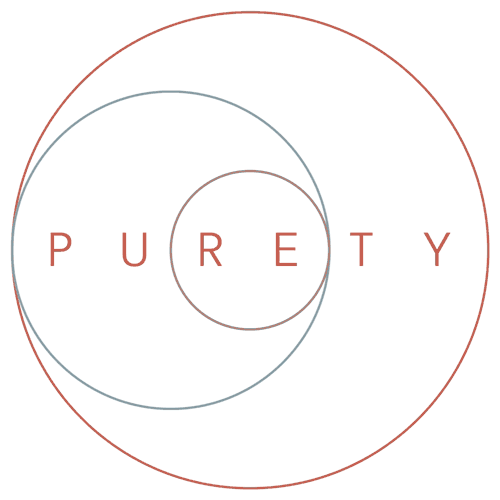The Truth About Tetrahexyldecyl Ascorbate: Is It the "Gold Standard" of Vitamin C? | Puretyclinicshop.com
When it comes to skincare, Vitamin C is often hailed as a must-have ingredient for its numerous benefits, from brightening the complexion to supporting collagen production. One form of Vitamin C that has gained popularity in recent years is Tetrahexyldecyl Ascorbate (THD), with some claims touting it as the "gold standard." However, it's important to take a closer look at the science behind these claims to understand whether THD truly lives up to the hype.
What is Tetrahexyldecyl Ascorbate (THD)?
Tetrahexyldecyl Ascorbate is a lipid-soluble form of Vitamin C, which means it can penetrate the skin's lipid barrier more easily than water-soluble forms. This characteristic has led to the belief that THD is a more effective and stable form of Vitamin C, especially in delivering its benefits deep within the skin. However, this perspective may be somewhat oversimplified.
Stability Concerns with THD
One of the key advantages often attributed to THD is its stability, which is crucial for the effectiveness of Vitamin C in skincare products. Unfortunately, research suggests that THD may not be as stable as it’s often portrayed. Without the presence of Acetyl Zingerone—a stabilizing ingredient—THD can degrade relatively quickly, which compromises its potential benefits.
This reliance on an additional stabilizer indicates that THD might not be inherently superior when it comes to maintaining its efficacy in skincare formulations. In contrast, L-ascorbic acid, another form of Vitamin C, is well-known for its effectiveness when formulated correctly, despite its sensitivity to light, heat, and air.
Evaluating the Effectiveness of THD
To further assess THD's effectiveness, it's important to examine the clinical evidence available. One notable study involved a formulation containing 10% THD and 7% L-ascorbic acid in a silicone base. The results, however, raise some questions.
Silicone-based formulas, while beneficial for creating a smooth application, may not absorb into the skin as effectively as aqueous-based formulas. This absorption issue could potentially limit the impact of the THD on the product. Moreover, the presence of L-ascorbic acid in the formulation makes it difficult to isolate the benefits of THD alone. Given that L-ascorbic acid is a well-documented, potent form of Vitamin C, it’s possible that any observed benefits were primarily due to this ingredient rather than THD.
The Proven Benefits of L-Ascorbic Acid
For those seeking a reliable and effective Vitamin C product, L-ascorbic acid remains a well-established choice. Extensive research supports its ability to brighten the skin, reduce hyperpigmentation, and promote collagen synthesis. To ensure you’re getting the most out of L-ascorbic acid, there are a few important factors to consider:
1. Concentration: L-ascorbic acid is most effective in concentrations ranging from 10% to 20%. Within this range, it can deliver noticeable results without overwhelming the skin.
2. Base Formulation: Aqueous-based formulas are preferred for L-ascorbic acid, as they enhance absorption into the skin. This ensures that the Vitamin C reaches the deeper layers where it can exert its full benefits.
3. pH Level: For L-ascorbic acid to be active and effective, the product should have a pH below 3.5. This acidic environment helps maintain the stability and potency of the Vitamin C, allowing it to perform optimally.
A Thoughtful Recommendation: Phyto-C Skincare
If you’re considering incorporating Vitamin C into your skincare routine, Phyto-C skincare products are worth exploring. Known for their commitment to science-backed formulations, Phyto-C offers Vitamin C serums that use L-ascorbic acid in ideal concentrations and stable, aqueous bases. These products are designed to penetrate the skin effectively, delivering the full range of benefits that Vitamin C has to offer.
You can explore their range of skincare products here: Skin Care – PuretyClinicShop.
Making an Informed Choice
While Tetrahexyldecyl Ascorbate is an interesting ingredient with some unique properties, it may not be the "gold standard" of Vitamin C as some claims suggest. Its stability issues and the limited evidence supporting its effectiveness mean that it might not deliver the results you're looking for. In contrast, L-ascorbic acid has a strong track record of delivering real benefits when used correctly.
By focusing on products that contain L-ascorbic acid in the right concentration, formulation, and pH, you can ensure that your skincare routine is both effective and backed by solid research. Making informed decisions about the products you use is key to achieving and maintaining healthy, radiant skin.






